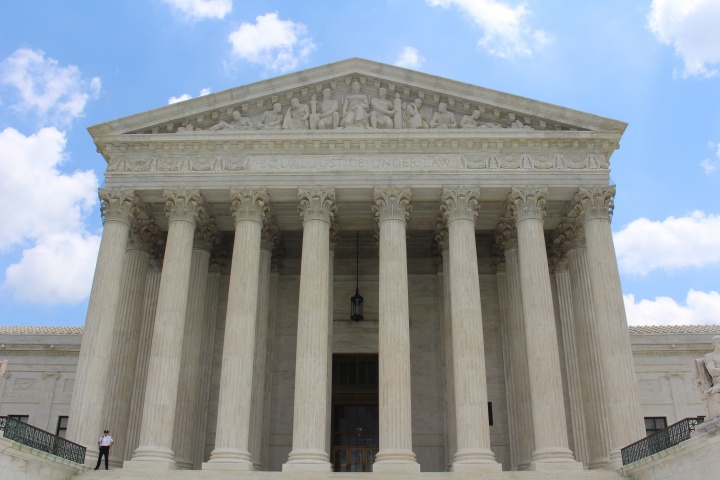The U.S. Supreme Court's Impact on Morality

Obtaining confirmation of court appointees committed to keeping morality alive in American law will be one of President George W. Bush's greatest challenges in his second term in office. Noted economist and author Thomas Sowell, in a Nov. 4, 2004 column about this past year's presidential election, explained the judicial stakes involved.
"With so many elderly members on today's Supreme Court, the choices of their successors will be historic in their consequences. Those consequences could be tragic if they are replaced with more Justices who think their job is to impose their own pet notions or—worse yet—to be guided by what is in fashion in other countries, instead of what is set forth in the Constitution of the United States that they are sworn to uphold."
Choices that transform society
The Supreme Court—the ultimate arbiter of what acts are legal—plays a key role in setting America's moral tone. Its legalization of abortion in 1973, though not a popular decision, changed the direction of the nation's morality drastically. At that time, abortion was still viewed by the majority of Americans as murder—a crime and a sin.
The court's undermining of morality began in 1963 when it banned school prayer. This ruling also went against the wishes of the vast majority of the American public. The consequences of this ruling—by initiating a move to banish God and the Bible from public life—have been socially devastating.
Crime and immorality have skyrocketed. And such consequences only make sense.
Take God and religion, the moral basis of decency in behavior, away from children's education and the result is a generation that is less moral. Repeat with each successive generation and it only gets worse. Throw in a curriculum built around the theory of evolution, telling students they are nothing more than intelligent animals, and the seeds for societal disaster are sown.
Constitutional perspectives
John Jay, first U.S. chief justice and one of the three men most responsible for the writing of the U.S. Constitution, made his view on how it should be interpreted very clear: "Providence has given to our people the choice of their rulers, and it is the duty, as well as the privilege and interest of our Christian nation, to select and prefer Christians for their rulers" (Letter to Jedidiah Morse, Feb. 28, 1797, emphasis added throughout).
In 1891 the U.S. Supreme Court made this remarkable statement: "Our laws and our institutions must necessarily be based upon and embody the teachings of the Redeemer of mankind, and it's impossible that it should be otherwise: and in this sense and to this extent our civilization and our institutions are emphatically Christian" (Church of the Holy Trinity v. The United States).
Thomas Jefferson, who gave us the now-misconstrued phrase "separation of church and state," explained well how the U.S. Constitution is supposed to be interpreted by judges, saying: "On every question of construction [of the Constitution] let us carry ourselves back to the time when the constitution was adopted, recollect the spirit of the debates, and instead of trying what meaning may be squeezed out of the text, or invented against it, conform to the probable one in which it was passed" (Letter to Justice William Johnson, June 12, 1823).
Much hangs in the balance
The more a nation heeds and follows the moral values that God gives in Scripture, the more blessed and secure that nation is. On the other hand, the more a nation rejects godly values, the more curses it brings on itself.
The Bible is very clear on this matter: "Righteousness exalts a nation, But sin is a reproach to any people" (Proverbs 14:34). A nation that expels God from public life should realize that it has little claim to His protection from threats or attacks, whether from without or within.
Thus, presidential appointments to the Supreme Court could prove more important to America in the long run than even the vital necessity of finding and rooting out terrorists. This is because the Scriptures also tell us, "When the righteous are in authority, the people rejoice; but when a wicked man rules, the people groan" (Proverbs 29:2).
Ungodly leadership-decisions can produce disastrous consequences. The desirable course of action, of course, would be that all leaders of all nations would seek God's will in an attitude of humility and repentance.
Though no nation is presently poised to take that step, nothing should prevent you from taking it. The responsibility you have toward God is in your own hands.
